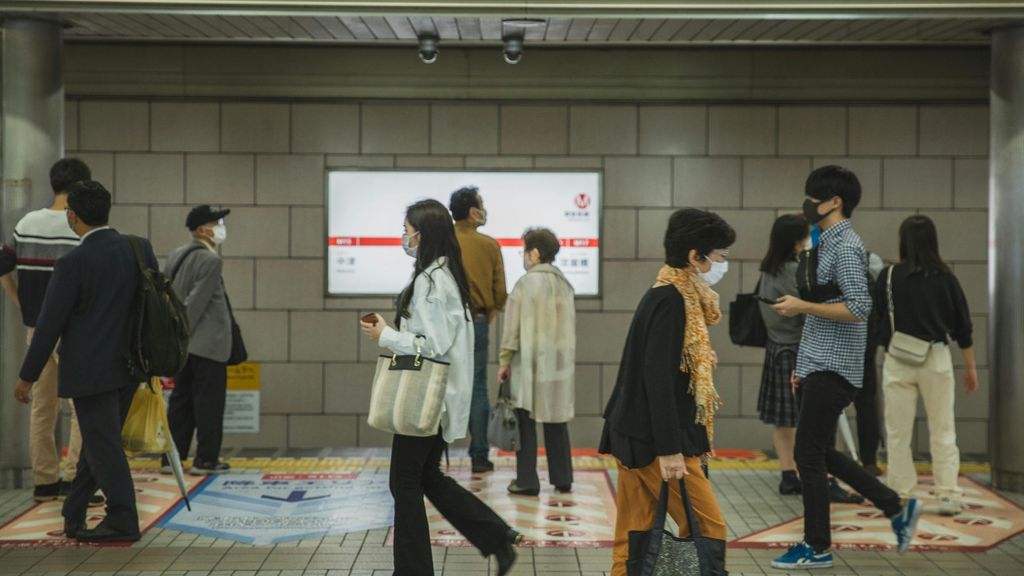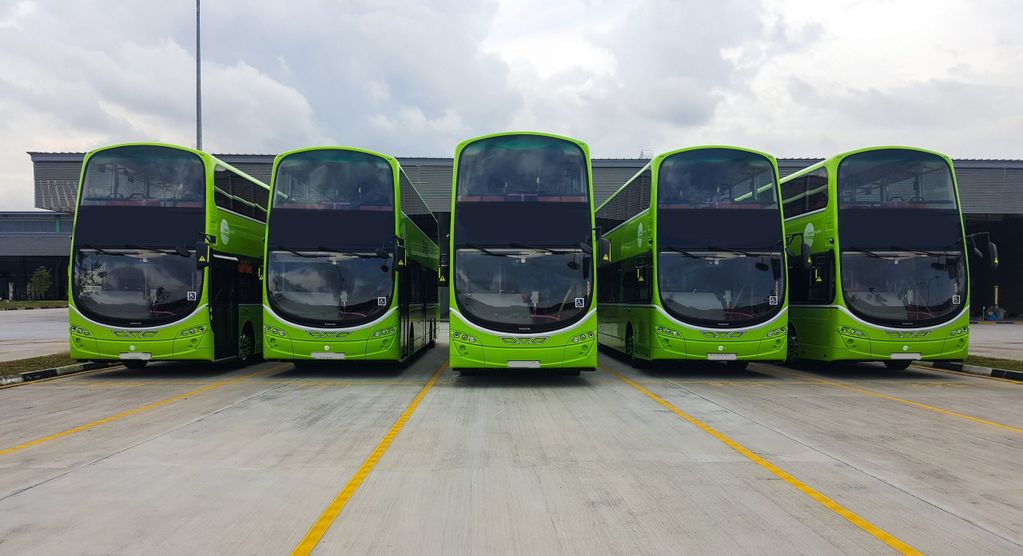
Where are we in the digital world during COVID-19? Over to our IT-TRANS keynote speaker Christoph Bornschein
IT-TRANS is set for a 2020 virtual experience and Christoph will address our online audience as keynote speaker…
In February of this year, we sat down with our IT-TRANS 2020 keynote speaker Christoph Bornschein, to gather his thoughts on the progressive digital transition that continues to change our everyday lives.
With his wise words, we learnt from the man you would want leading your digital strategy.
Then the coronavirus pandemic struck and our 2020 edition of IT-TRANS moved from a physical edition in March to a virtual edition in December (online, 1-3 December), and we all missed the chance to hear the words of Christoph…well that will all change now!
It’s important to address the digital development of the business world during COVID-10 and beyond…and the role of digitalisation in public transport makes IT-TRANS the perfect event to do this.
As a sector, we have a key role to play in keeping our cities moving. There has never been a better time to innovate and inspire, and during COVID-19 the debate around digitalisation and I.T. solutions has continued to advance. We must learn from another in both recognising the challenges within public transport and developing the opportunities the future may bring. The 2020 edition of IT-TRANS is the perfect occasion to bring all of those ideas together.
Christoph Bornschein knows what the digital revolution has done for the world…
As CEO and Co-Founder of TLGG, the German agency boutique consultancy for digital business, Christoph offers his counsel to global companies and brands such as Bayer, Ford, ING, Lufthansa, Deutsche Bank and KUBIKx.
So much has changed in public transport and the digital world since we last spoke with Christoph, and in order to best address what the changes to our movement, lives and workplace have meant for the digital transformation, it was time to have our next conversation with the man putting the spotlight on digital change.
So without further ado, it’s over to our IT-TRANS 2020 keynote speaker Christoph Bornschein…
Q: How has the coronavirus pandemic impacted your own work and industry?
It has become clear that many companies are struggling with their lack of digitalisation. We were quite fortunate, because in our own company digital was already the old normal. We communicate on Slack and Teams and have flexible workplaces, so the shift to a fully remote work culture was not as dramatic as it might have been in other companies. Like everyone else we moved meetings to Zoom and Microsoft Teams, we introduced new virtual formats to stay connected with our teams.
We reacted quickly and helped our clients make the necessary adjustments so that current projects wouldn’t be interrupted. Of course, I am grounded and staying at home like most people, which is a big adjustment for me personally and definitely not my preferred way of working. Client-wise we found that the need for guidance is now bigger than ever, for companies that have to accelerate digital processes or adjust business models, or agency clients who need to change the way they interact with their customers.
Many of our clients really are eager to use this momentum as an opportunity to change the way they work, collaborate, and communicate, so they are prepared for whatever happens next.
Q: Christoph, a great deal has changed since we last sat down with you to promote your role as our IT-TRANS keynote speaker…what are your thoughts on the impact COVID-19 has had on the digital world?
COVID-19 is true disruption. For years, “digital” was something that happened parallel to the core business of many corporations. Small innovation and digital units worked on digital products using agile methods without much overlap with the corporate reality. For many of them, this year was the real stress test. Digitalisation has taken hold across the board and it is becoming clear who is well prepared, with Covid accelerating the need to adapt. And it shows: Most companies of all sizes have increased their investment in digital equipment, technologies and applications significantly. All of a sudden “digital” has become a mean of survival. Companies are also realising that they can’t afford to postpone big decisions until they have greater clarity because that moment will never come. The truth is we live in a state of constant uncertainty which was the status quo prior to Covid already but now becomes something quite undeniable.
There are many issues that companies can address right now. Those open positions that have not been filled for years because the right candidates were not available? Now the people are on the market. The new system which employees didn’t warm up to? Right now they are dependent on exactly these digital tools. New working methods and processes that should have been tested a long time ago? They’re happening now, whether you like it or not. In that sense Covid really can be a driver of change.
The challenge now is to ask the right questions: Which long-planned projects can be realised now that other topics have been dropped or de-prioritised? And which projects can be implemented particularly well if every employee works from home? What has to happen so that one’s own products and services work for a company in quarantine?
Q: Public transport continues to be greatly impacted by the pandemic, and digitalisation within the sector has been an important topic throughout these times.
An online edition of IT-TRANS is needed to address these changes. What kind of insight can you give us in to your speech?
We’ve witnessed a massive reduction in demand for public transportation over the last couple of months and it’s tough for the industry to react to these changes. Short-term cost reductions (e.g. through staff cuts) are not an option, as operations need to be fully operational again once the pandemic is over. The goal right now is to survive and be prepared for the time after the coronavirus.
We do think that, after the crisis, there will be an increasing demand for mobility, which will probably lead to an even stronger competitive environment with start-ups and automotive players both fighting for a place at the table.
Hopefully this will lead to better products and services which are desperately needed. Since the start of the pandemic most major cities have been stuck in traffic jams due to the lack of public transportation or wariness of people to use it. Obviously, that’s not sustainable. It’s high time to switch to more climate and inhabitant-friendly means of transport, with public transportation playing a major part.
People want to get to their destination quickly and comfortably, with the destination being different for everyone. Transport companies can only address these individual needs if they think in terms of integrated, multi-modular solutions, and cooperate with competitors. In this context, digitization not only contributes as a “networking environment”, but also with regard to data. Currently, transportation companies rarely have a uniform, usable data set to reliably show, for example, capacity utilization or live traffic information. Such information is really important, not only during a pandemic.
Not only the offer, meaning the experience, must be improved; planning, ticketing, information, everything should work through a uniform, nationwide platform. This sounds like a big task and it is, but there are role models to look at. Start-ups, for example, have experience in how to digitise processes quickly and cost-effectively.
Q: And finally, what do you think the changes to the ways in which we’re living right now mean for the digital revolution? What’s your feelings on the next steps?
Covid-19 has definitely accelerated the digital transformation in many ways, on a structural and procedural level, as well as a personal one. Companies and people both were forced to switch to digital practically overnight and realised that most of the time it worked out well.
Nine months in, digital has become a habit for many and will continue to play a major role in the future. It’s an opportunity to really look at it and see how to best use digitisation. Is it remote working or a new business model? Is it AI or customer management? When is travelling and face-to-face time really valuable?
It is still too early to say how the recovery of the economy will proceed, which industries and products will come out stronger and how consumer behaviour will change in the long run. Companies have found themselves under a magnifying glass and have experienced their own vulnerabilities in a very direct way. I think they now understand that they have to react in order to be prepared for and able to adapt to future uncertainties and disruption. They know better what holds them back and what their assets are.
In the end, those companies will prevail that can quickly anticipate customer expectations – such as switching to contactless delivery within a few hours in the middle of a pandemic or introducing tests for employees so that the supposedly safer e-commerce alternative to the shopping centre does not unintentionally become a super-spreader event.
A huge thank you to Christoph for his time and his wise words! We can’t wait to see him take to the digital stage next week!
Register to join us at IT-TRANS 2020 now
What about the Taxi and Ride-Hailing Digital Conference?









